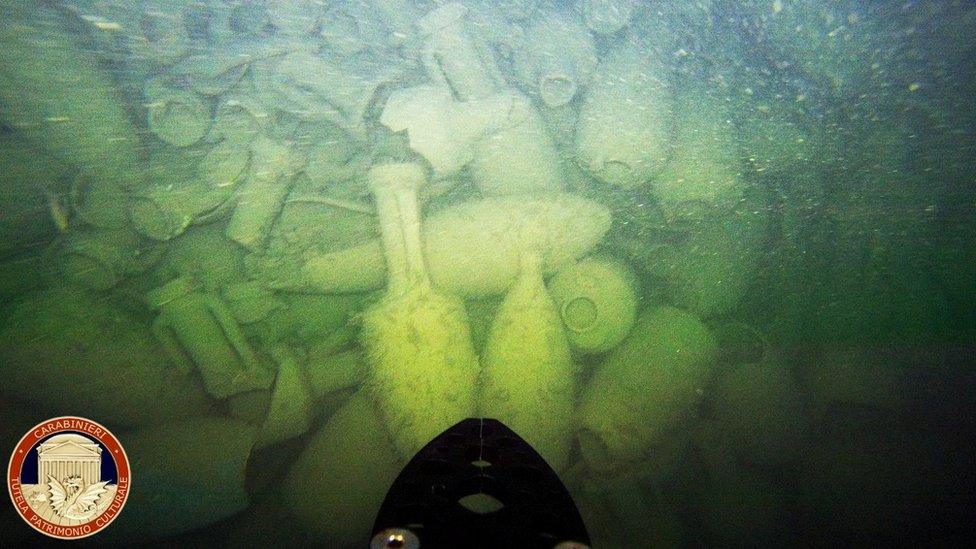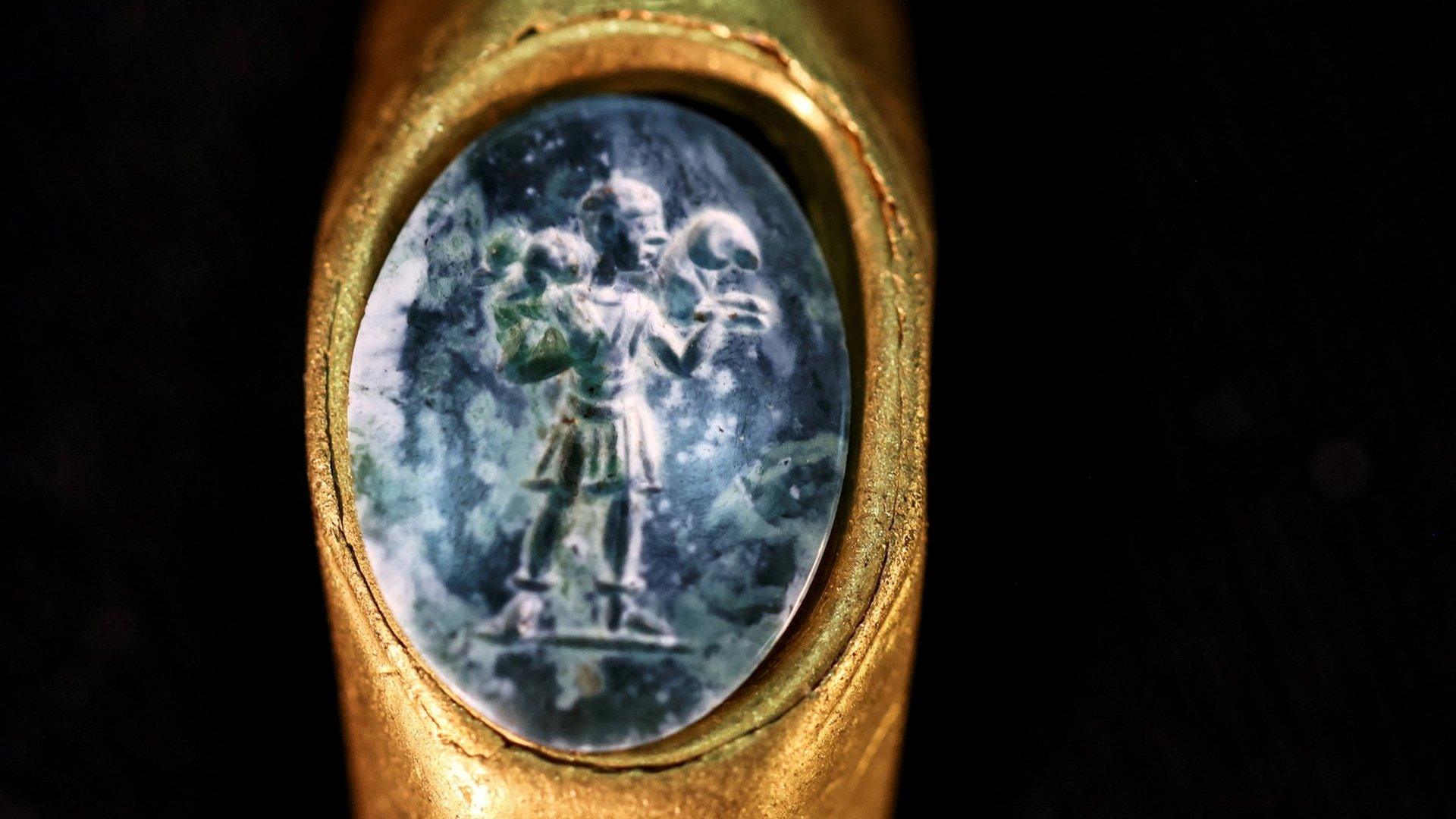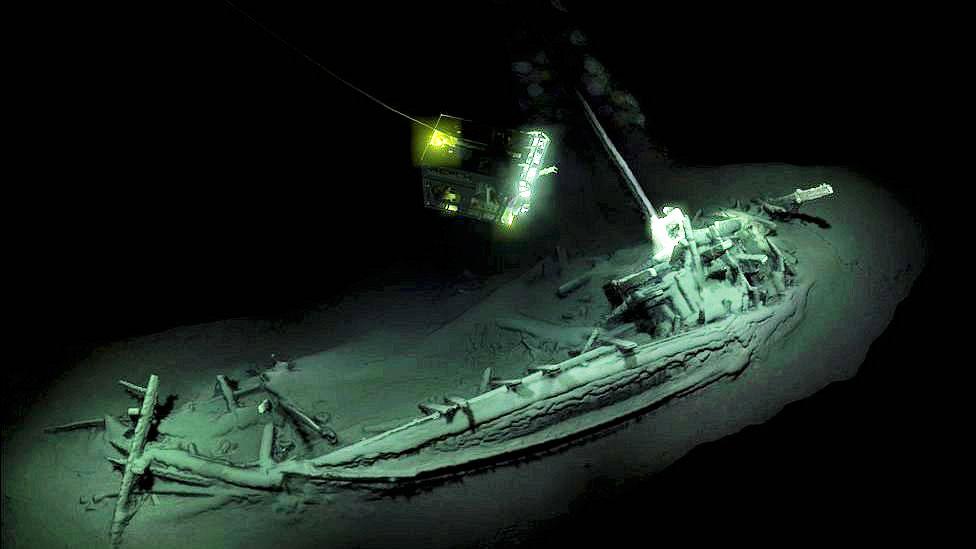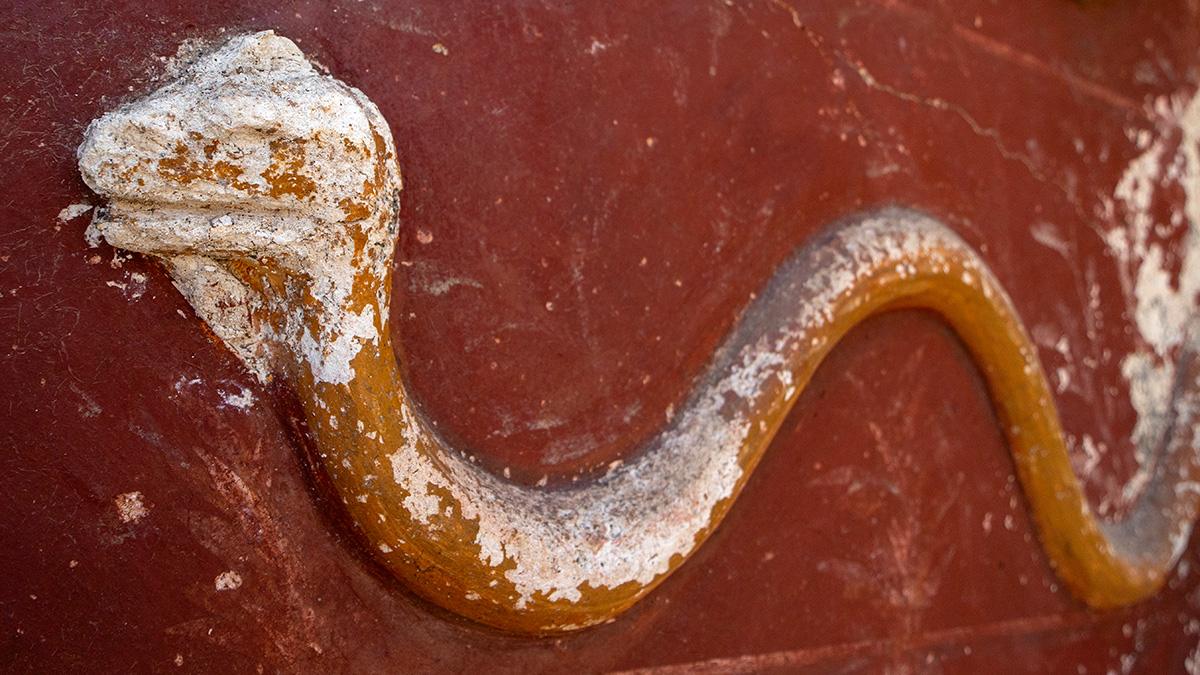Ancient 2,000-year-old Roman shipwreck found off coast of Italy
- Published

A large haul of Roman storage containers were found in the wreckage
The wreckage of an ancient Roman ship from more than 2,000 years ago has been found off the coast of Italy.
The cargo ship was found off the port of Civitavecchia, about 50 miles (80km) north-west of Rome.
It dates from about the 1st or 2nd Century BC and was found laden with hundreds of amphorae - a type of Roman terracotta jar.
The pottery was found mostly intact, the Carabinieri police's art squad said in a statement.
The ship, estimated to be more than 20m long, was discovered on a sandy seabed 160m (525ft) below sea level.
"The exceptional discovery is an important example of the shipwreck of a Roman ship facing the perils of the sea in an attempt to reach the coast, and bears witness to old maritime trading routes," the Carabinieri said.
The police art squad - which is in charge of protecting Italy's priceless cultural heritage - said the relic was found and filmed using a remotely operated robot.
They did not say whether experts will now try and recover it, or its precious cargo, from the sea floor.
It is not known what the Roman jars on board would have been used for, although typically amphorae were used to transport goods, such as oil, wine or fish sauce. Such artefacts are widely found throughout the ancient eastern Mediterranean world.
The discovery of wrecked ships is not unusual - there are said to be thousands dotted around the Mediterranean.
In 2018, a Greek merchant ship dating back more than 2,400 years was found lying on its side off the Bulgarian coast - and was hailed as officially the world's oldest known intact shipwreck.
Also in 2018, dozens of shipwrecks were found in the Aegean sea dating back to the Greek, Roman and Byzantine eras.

You may also like

Related topics
- Published22 December 2021

- Published23 October 2018

- Published19 July 2023
